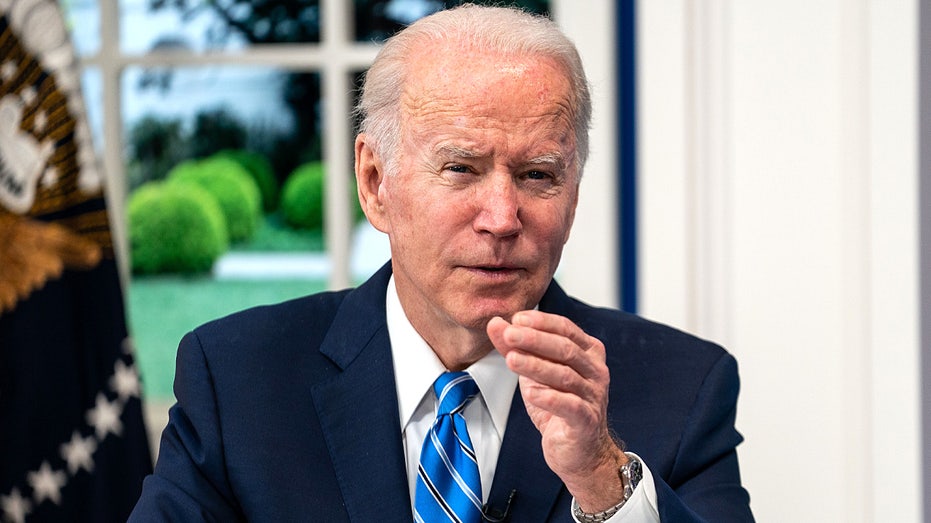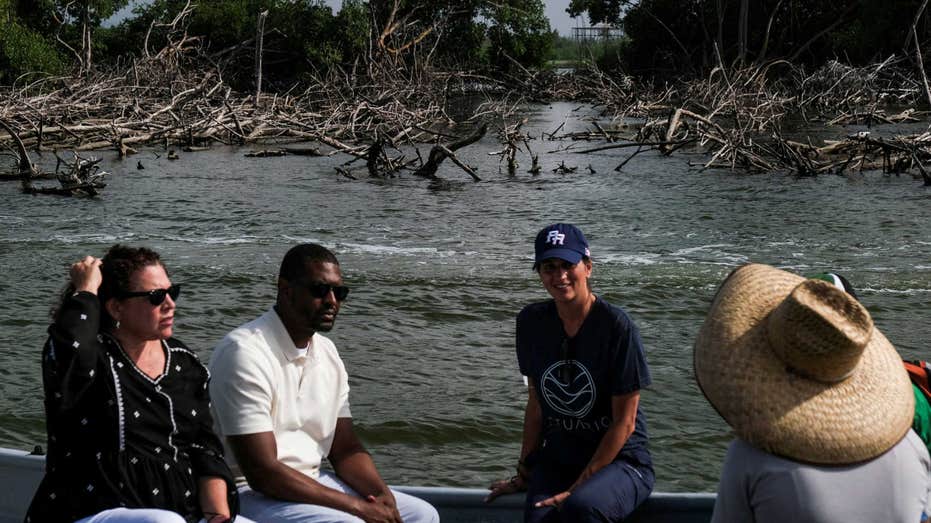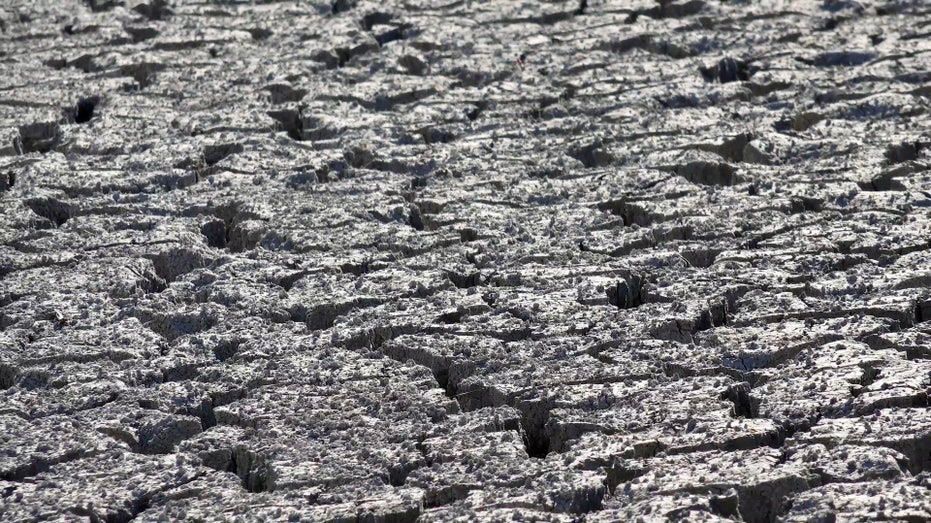[ad_1]
Sen. Kevin Cramer, R-N.D., rips into Biden’s energy agenda and agreement to pay climate reparations to poor countries on ‘Kudlow.’
The Biden administration signed off on Environmental Protection Agency (EPA) regulations to protect small streams, wetlands and waterways as part of the Clean Water Act, just before the end of 2022.
President Joe Biden’s signing of the regulations ultimately repealed Trump-era regulations that made many waterways susceptible to pollution and were thrown out by federal courts.

President Joe Biden (Kent Nishimura / Los Angeles Times via Getty Images/File / Getty Images)
The EPA signed off on the revised definition of “Waters of the United States” on Dec. 29 while the U.S. Army Corps of Engineers signed off on the revised definitions on Dec. 28.
BIDEN EPA PLANS TO TACKLE COAL INDUSTRY BY ENACTING NEW LIMITS ON OTHER POLLUTANTS
The revised rules define what types of water bodies are protected under the Clean Water Act and were based on definitions that were put in place before 2015 during the Obama administration.
The Trump administration reversed course from the Obama administration, which looked for ways to expand federal protections of waterways.

The Biden administration has signed off on EPA regulations to protect small streams, wetlands and waterways as part of the Clean Water Act. (AP Photo/Adrian Sainz/File / AP Newsroom)
The Trump administration’s rule benefited property owners, including farmers, builders, and oil producers, who were concerned about feds regulating ravines and creeks on private property, like farms.
BIDEN’S POLICIES ARE CREATING CARBON EMISSION | FOX NEWS VIDEO
Without regulations on those waterways, environmental groups said, the rule allowed wetlands to be filled in by property owners, damaging habitats. It also allowed for property owners to dump harmful pollutants into the unprotected waterways, which could potentially flow downstream and threaten wildlife or water supply sources.
The Trump-era rule was thrown out by U.S. District Court Judge Rosemary Marquez, who said the regulations ignored that smaller waterways could affect the health of waterways they flow into, the Associated Press reported.

EPA Administrator Michael Regan, second from left, visits the San Jose Lagoon in San Juan, Puerto Rico, on July 26, 2022. (Reuters/Gabriella N. Baez / Reuters)
The new rule signed by the Biden administration increases protections of wetlands, lakes, ponds and some streams, especially if they are navigable waterways or wetlands that are “relatively permanent.”
BIDEN EPA TO BLOCK COMMON CROP PESTICIDE, CITING POTENTIAL HEALTH HAZARDS
There are no specific distances defined for adjacent waterways or wetlands to determine whether they would be protected or not, but instead the rules state that the impact “depends on regional variations in climate, landscape, and geomorphology.”
The West, for example, gets less rain and has higher rates of evaporation, so wetlands may need to be near a waterway to be considered adjacent. But in places that are wide and flare, wetlands could be determined reasonably close, even if they are 100 feet away.
Congressman Doug LaMalfa, a Republican who represents California, is opposed to the regulations.

What was once a water source for a farm in northern California has dried up and now looks like cobblestone. (FOX / Fox News)
“Rural America doesn’t need yet another rule giving the federal government more power over farming and private property,” he said in a statement last week. “The federal government shouldn’t have jurisdiction to regulate puddles, ditches, seasonal creeks or culverts. All this rule does is make it more difficult to grow food or build anything.”
CLICK HERE TO READ MORE FROM FOX BUSINESS
Republican Sen. Steve Daines of Montana also raised concerns about the federal government overreaching, saying that the Obama administration’s rule was “written so broadly” that it covered everything from puddles to irrigation ditches on private land, making them subject to federal regulations.
“This is a step in the wrong direction from the Biden administration and it infringes on the rights of Montana farmers, ranchers and landowners,” Daines said in a statement last week. “This overreaching rule threatens Montana ag and natural resources and is unacceptable. I will continue to vigorously fight to protect Montanans from out-of-touch rules handed down from D.C. bureaucrats.”
Dairy farmer Stephanie Nash criticizes the USDA and Biden administration over food production policies and calls on more support for American-grown products, warning of food shortages into 2023.
[ad_2]
Source link
